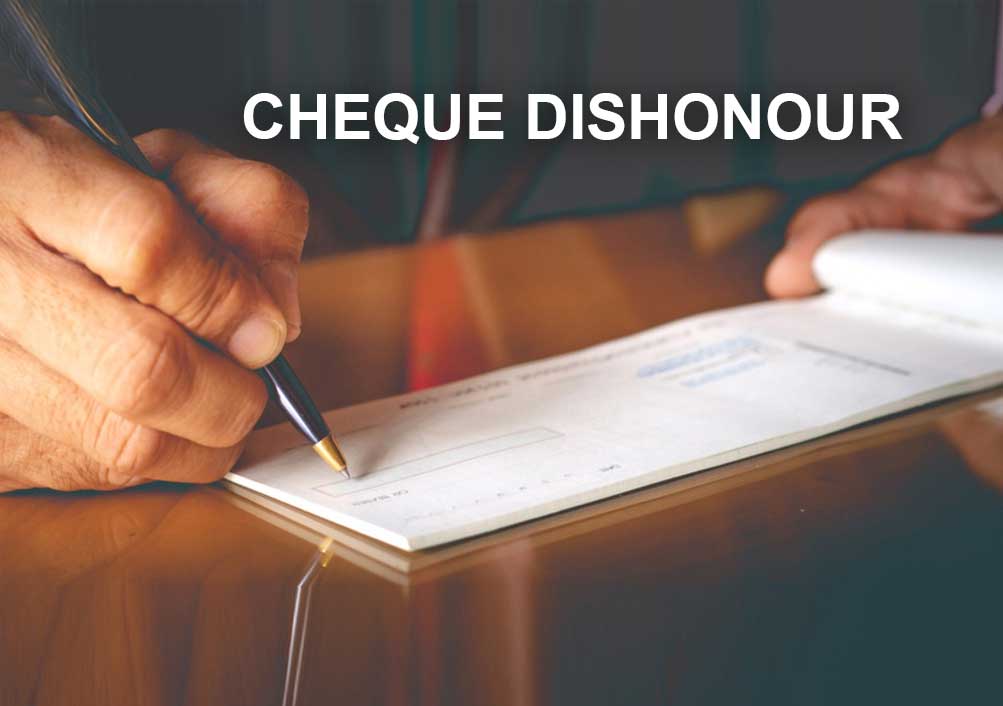In CRR No.504-2020(O&M)-PUNJ HC- P&H HC directs accused in cheque dishonour case to deposit 15% of cheque amount with concerned wing of High Court Legal Aid after matter was compromised on full payment of amount by accused Justice Anoop Chitkara [18-04-2022]

Read Order: Ashu Poultries & another v. M/s Longowal Enterprises & another
Monika Rahar
Chandigarh, April 19, 2022: While adjudicating upon a cheque bounce case wherein the parties compounded the matter willingly after the entire amount due was paid by the accused-petitioners, the Punjab and Haryana High Court has reiterated that in such cases where the matter is compromised willingly and the entire amount due is paid by the accused, the accused is bound to pay 15% of the cheque with the State Legal Services Authority and has directed the petitioners (accused) to pay Rs. 34,338 (15% of the cheque amount) with the concerned wing of High Court Legal Aid.
Also, in the eventuality of the petitioners’ failure to comply with the above directions, the Bench of Justice Anoop Chitkara held, “(…) this entire order, including compounding, shall automatically stand recalled under Section 362 and Section 482 CrPC, and this petition shall be posted for hearing on merits.”
In this case, the Court was dealing with a revision petition filed by the petitioners, who were convicted for the commission of an offence punishable under Section 138 of the Negotiable Instruments Act, 1881 (NI Act).
Before the matter could be heard on merits, the parties to the present litigation compromised the matter by reaching a settlement outside the Court. During the course of the arguments, the Complainant presented a settlement deed dated November 18, 2020.
Here, since the matter was compromised and the entire amount (which was the subject matter of the dishonoured cheque) was paid by the petitioners and the dispute was compromised, therefore, the issue of payment of 15% of the amount of dishonoured cheque arose.
Before the Court, the petitioners were not represented by any counsel, thus, the Court directed the appointment of a legal aid counsel and proceeded with the matter. The Legal Aid counsel so appointed submitted that in case the 15% compensation amount could not be deposited, then in such a situation, the time to do so may be extended and also prayed that in case it is beyond the financial capacity of the petitioner to pay the 15% amount then it may be dispensed with or reduced after considering the petition’s paying capacity, family, and financial liabilities.
The Court, after considering the factual situation as also the submissions of the counsel, firstly reflected on the jurisprudence governing the provisions of the NI Act. In this respect, it was opined that the jurisprudence behind this Act is that the business transactions are to be honoured. The Court further added that the legislative intention is not to make people suffer incarceration only because their cheques bounced but to recover the cheque amount by showing the teeth of a penal clause.
Further, the Court made reference to the judgment in Damodar S. Prabhu v Sayed Babalal wherein the Apex Court had held that the law is well settled that when the entire money is paid, then the complainant cannot have any objection to such compromise, and 15% of the cheque amount is to be paid by the accused to the concerned State Legal Services Authority.
Thus, in light of the above, the Court found this case to be fit to invoke its inherent power under Section 482 of the CrPC supported by Section 147 of the NI Act to disrupt the prosecution and quash the proceedings mentioned above. Accordingly, the complaint, notice of accusation, and the proceedings under Section 138 NI Act were quashed and set aside. The bail bonds were accordingly discharged.
And, on the issue of payment of a certain amount to State Legal Services Authority, the Court directed the petitioners to pay Rs. 34,338/- which is 15% of the cheque amount with the concerned wing of High Court Legal Aid, and in the eventuality of the petitioners’ failure to comply with this direction, the Court directed the entire order, including compounding, to be recalled under Section 362 and Section 482 CrPC, and this petition to be posted for hearing on merits of the case.
Also, the Court held that after taking into account the family and financial liabilities of the petitioners, if it is found that it is beyond the petitioners’ financial capacity to pay the 15% amount, then in such a situation, it shall be open for the petitioners to apply to section 482 CrPC by placing on record the bank statements from April 1, 2020, till the date of all bank accounts, all fixed deposits, DEMAT account numbers, the current market value of jewellery, sovereign metals, all precious articles, held either individually or jointly, and cash-in-hand. After analyzing the petition’s paying capacity, the court shall consider reducing or dispensing with 15% of the amount mentioned earlier, held by the Court.
Lastly, the Court held, “In extraordinary circumstances, the petitioners may approach this Court for an extension of time to deposit the compounding fee. Petitioners to file the proof of deposit before the trial Court within the aforementioned time.”
Sign up for our weekly newsletter to stay up to date on our product, events featured blog, special offer and all of the exciting things that take place here at Legitquest.




Add a Comment